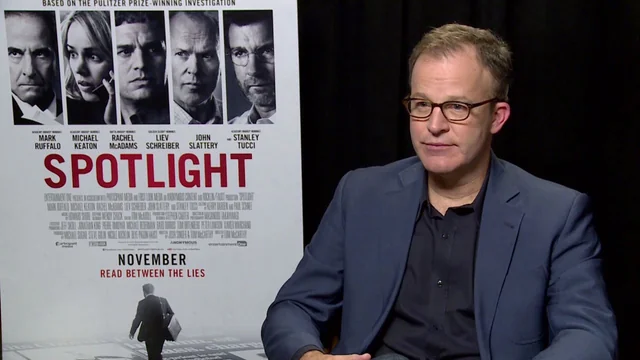There are films which entertain, and there are others which educate, disturb, and then stay back. *Spotlight* (2015) directed by Tom McCarthy is that kind of a film. Having watched this movie as a student of the media was like being present for a masterclass on investigative journalism—and being reminded how essential truth is, and what effort it takes to pursue it.
Released in 2001, *Spotlight* tells the true story of The Boston Globe’s Spotlight team’s investigation that uncovered the Catholic Church’s institutionalized cover-up of child sex abuse. What begins as one report becomes an elaborate web of institutional silence, complicity, and trauma spanning decades and extending to hundreds of lives.
What stands out immediately is the subdued tone of the film. There’s no background music trying to rile your feelings, no melodrama. The acting—particularly Michael Keaton’s, Rachel McAdams’, and Mark Ruffalo’s—is kept down and down-to-earth. They’re not made out to be messiahs, but obstinate professionals bound by duty, frustration, and sometimes personal culpability.

For a student of media practice and theory, *Spotlight* is a treasure trove. It distills journalism to its bare essentials: interviews, files, roadblocks, and dogged fact-checking. The film respects the intelligence of its audience, allowing us to stick with the story even when it gets deeply involved in legal filings or policy loopholes. And it never loses track of the moral high wire that journalists must tread—selling truth, tact, and the seriousness of uncovering institutions.
What’s particularly interesting is how *Spotlight* uncovers the power networks that conceal predators—not just in the Church, but also in the media, legal, and political domains. As a future media practitioner, it’s a haunting reminder that complicity so often resides in silence. Journalism’s not all about putting stories out there—it’s about shaking the complacency of the powerful.
Visually, the film mirrors its content—serious, intense, and plain. There are no elaborate shots or visually jarring moments. The simplicity lends itself to the realism and reinforces the gravity of the topic.
*Spotlight* is not just a film about revealing abuse—it’s about responsibility, persistence, and the moral obligation of the press. It’s a quiet, powerful testament to the worth of institutional critique, and the courage it takes to tell the truth to power when nobody else will.

Plot Summary
*Spotlight* is a true story. It is about a group of reporters from *The Boston Globe* newspaper. They uncover an enormous scandal in which numerous Catholic priests had been sexually abusing children for years—and the Church covered it up. The reporters move slowly and methodically to get to the bottom of things and report to the world. Their efforts sparked an international dialogue on abuse in institutions of power.
Performance
The actors in *Spotlight* perform excellently.
– *Michael Keaton* acts the team leader with calm strength.
– *Rachel McAdams* introduces quiet emotion to her performance.
– *Mark Ruffalo* displays passion and frustration in a very realistic way.
All the actors perform naturally, without trying to be the center of attraction. They simply allow the story to take the limelight.

Direction and Tone
Director **Tom McCarthy** keeps things plain and serious. The tone is respectful, calm, and intent. No melodrama for the sake of drama. The film just builds up slowly as the reporters close in on the truth. It’s real and earthy—like watching actual things happen
Theme and Impact
The overriding theme is truth and accountability.
The film demonstrates how strong institutions can cover up wrong things, and how journalism can make things right. It also demonstrates how difficult and meticulous actual reporting is. The film made a huge difference—people all over the world began questioning abuse and cover-ups. It demonstrates how media can change the world.







More Stories
IndiGo Plunges Into Crisis: Questions Over Airline Planning
Asia at Boiling Point: How Weather Is Rewriting the Region’s Future
Maithili Thakur: From Folk Singing Sensation to Rising Political Star